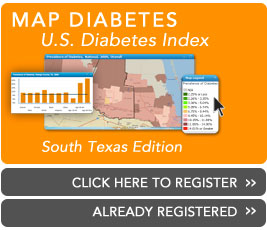Posted by Staff
News
Thursday, April 18th, 2013
JCEM: April 15, 2013
Objective: To review the evidence about the impact of hypoglycemia on patients with diabetes that has become available since the past reviews of this subject by the American Diabetes Association and The Endocrine Society and to provide guidance about how this new information should be incorporated into clinical practice.
Participants: Five members of the American Diabetes Association and five members of The Endocrine Society with expertise in different aspects of hypoglycemia were invited by the Chair, who is a member of both, to participate in a planning conference call and a 2-day meeting that was also attended by staff from both organizations. Subsequent communications took place via e-mail and phone calls. Read more
Posted by Staff
News
Thursday, April 18th, 2013
The Diabetes Educator: April 15, 2013
Purpose The purpose of this study was to examine reports of diabetes learning needs by youth with type 2 diabetes and their family support person (FSP) and to examine correlations of these perceptions with demographic variables.
Methods Data were analyzed from the Participant Needs Assessment (PNA), a routinely self-administered questionnaire designed to assess learning needs, in 191 youth (mean age = 14.0 ± 1.9 years, duration 8.78 ± 6.30 months; 36% black, non-Hispanic; 40% Hispanic; 20% white) enrolled in the TODAY (Treatment Options for Type 2 Diabetes in Adolescents and Youth) study. Read more
Posted by Staff
News
Thursday, April 18th, 2013
PLOS One: April 10, 2013
Introduction
Skin and soft tissue infections (SSTIs) are common infections occurring in ambulatory and inpatient settings. The extent of complications associated with these infections by diabetes status is not well established.
Methods
Using a very large repository database, we examined medical and pharmacy claims of individuals aged 0–64 between 2005 and 2010 enrolled in U.S. health plans. Diabetes, SSTIs, and SSTI-associated complications were identified by ICD-9 codes. SSTIs were stratified by clinical category and setting of initial diagnosis. Read more
Posted by Staff
News
Thursday, April 18th, 2013
Arteriosclerosis, Thrombosis, and Vascular Biology: April 4, 2013
Objective—To test whether equivalent energy expenditure by moderate-intensity (eg, walking) and vigorous-intensity exercise (eg, running) provides equivalent health benefits.
Approach and Results—We used the National Runners’ (n=33 060) and Walkers’ (n=15 945) Health Study cohorts to examine the effect of differences in exercise mode and thereby exercise intensity on coronary heart disease (CHD) risk factors. Baseline expenditure (metabolic equivant hours per day [METh/d]) was compared with self-reported, physician-diagnosed incident hypertension, hypercholesterolemia, diabetes mellitus, and CHD during 6.2 years follow-up. Read more
Posted by Staff
News
Thursday, April 18th, 2013
ADA Diabetes Care: February 19, 2013
OBJECTIVE Laboratory studies suggest that exposure to methylmercury at a level similar to those found in fish may induce pancreatic islet β-cell dysfunction. Few, if any, human studies have examined the association between mercury exposure and diabetes incidence. We examined whether toenail mercury levels are associated with incidence of diabetes in a large prospective cohort.
RESEACH DESIGN AND METHODS A prospective cohort of 3,875 American young adults, aged 20–32 years, free of diabetes in 1987 (baseline), were enrolled and followed six times until 2005 Read more
Posted by Staff
Clinical Trials
Thursday, April 18th, 2013
The Diabetes Educator: April 15, 2013
Purpose The purpose of this study is to evaluate the effectiveness of a nutrition-based shared medical appointment (SMA) intervention in the treatment of prediabetes compared to the individualized counseling standard of care.
Methods A randomized controlled trial design comparing health outcomes in patients with prediabetes attending either an individualized counseling (control group) or three 90-minute nutrition SMA (intervention group) sessions. Read more
Posted by Staff
Clinical Trials
Thursday, April 18th, 2013
JCEM: April 12, 2013
Context: The stepwise hyperglycemic clamp procedure (SHCP) is the gold standard for measuring the renal threshold for glucose excretion (RTG), but its use is limited to small studies in specialized laboratories.
Objective: The objective of the study was to validate a new method for determining RTG using data obtained during a mixed-meal tolerance test (MMTT) in untreated and canagliflozin-treated subjects with type 2 diabetes mellitus (T2DM).
Design: This was an open-label study with 2 sequential parts.
Setting: The study was performed at a single center in Germany.
Patients: Twenty-eight subjects with T2DM were studied. Read more



























